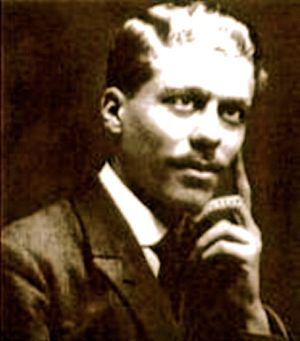Emmanuel Mounier facts for kids
Quick facts for kids
Emmanuel Mounier
|
|
|---|---|
 |
|
| Born | 1 April 1905 |
| Died | 22 March 1950 (aged 44) |
| Alma mater | University of Paris |
| Era | 20th-century philosophy |
| Region | Western philosophy |
| School | Continental philosophy Personalism Non-conformists of the 1930s |
|
Main interests
|
|
|
Notable ideas
|
Personalism Communitarianism |
|
Influences
|
|
|
Influenced
|
|
Emmanuel Mounier (born April 1, 1905 – died March 22, 1950) was an important French thinker. He was a philosopher, a religious scholar, a teacher, and a writer. He is best known for starting a way of thinking called Personalism.
Contents
Who Was Emmanuel Mounier?
Emmanuel Mounier was a key leader in the French personalist movement. This was a group of thinkers who believed that the "person" (each individual human being) is the most important thing. They thought that society should be built around helping people grow and connect with each other, not just focusing on money or big systems.
Early Life and Ideas
Mounier grew up in a farming family. He was a very smart student and studied at the University of Paris. When he was only 24, he was inspired by a French writer named Charles Péguy. Péguy's ideas helped Mounier start the personalist movement.
Mounier's ideas became very important for a group called the "Non-conformists of the 1930s". These were young French intellectuals who didn't agree with the usual political ideas of their time. They wanted new ways of thinking about society and politics.
Spreading His Philosophy
A man named Peter Maurin, who helped start the Catholic Worker Movement, often told people, "There is a man in France called Emmanuel Mounier. He wrote a book called The Personalist Manifesto. You should read that book." This shows how Mounier's ideas spread and influenced others.
Mounier also worked as a teacher. He taught at the Lycée du Parc in Lyon, France, and at the Lycee Français Jean Monnet in Brussels, Belgium.
Mounier's Views and Challenges
Mounier was critical of some political events, like the "Moscow Trials" in the 1930s, which were unfair trials in the Soviet Union. However, some historians have pointed out that he didn't always strongly speak out against certain harsh political actions that happened after World War II.
In 1939, Mounier also commented on Pope Pius XII's silence when Italy took over Albania. This was part of a bigger discussion about the Pope's actions and decisions during a very difficult time in history, especially concerning the Holocaust.
His Writings
Emmanuel Mounier wrote many books and articles about his personalist philosophy. His writings explored ideas about what it means to be a person, how people should live together in communities, and how faith and society connect. Some of his most famous works include Manifesto in the Service of Personalism and What is Personalism?. His books helped explain his ideas to a wider audience.
See also
 In Spanish: Emmanuel Mounier para niños
In Spanish: Emmanuel Mounier para niños
- Ligue de la jeune République
 | Frances Mary Albrier |
 | Whitney Young |
 | Muhammad Ali |

